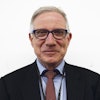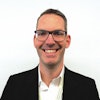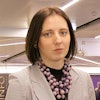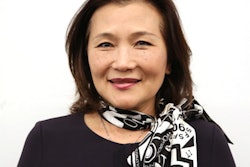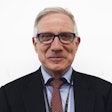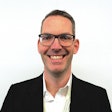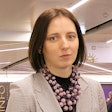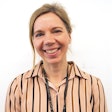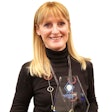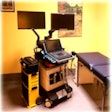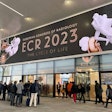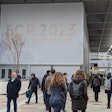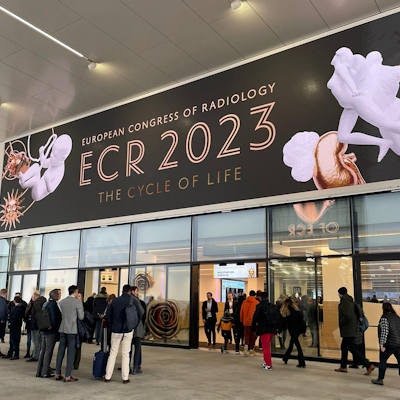
VIENNA - With the continued cultural evolution of a globalized world, questions of equality and diversity are in active public discourse, and the field of radiology must respond, according to a March 1 session at ECR 2023.
A panel of three radiologists discussed the importance of developing a diversity, equality, and inclusivity (DEI) framework within radiology and how progressive development of such a structure can be promoted. The panel included Dr. Geraldine McGinty of Weill Cornell Medicine, New York; Dr. Anagha Parkar of Haraldsplass Diakonale Sykehus in Bergen, Norway; and Dr. Ruchira Sinnatamby of Cambridge University in the U.K.
Unconscious bias causes a person to surround themselves with people who mirror their experience of the world and how they operate in it, the panel noted. Addressing this bias in favor of a diverse perspective allows for leads to better care in the field of medicine, allowing clinicians to care for a broad range of patients more effectively.
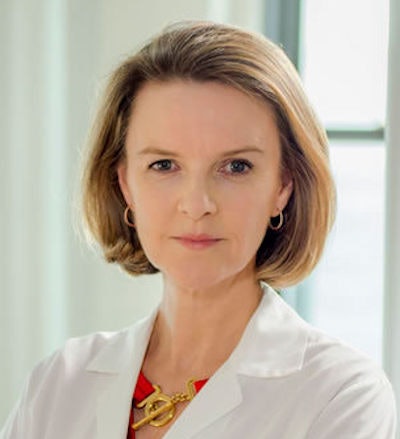 Dr. Geraldine McGinty.
Dr. Geraldine McGinty.Establishing a diverse, equitable, and inclusive radiology department doesn't mean only hiring clinicians who may have experienced marginalization, McGinty told session attendees. Having more diversity around the table might broaden a radiology team's perspective, but it won't ensure people feel safe to speak up -- and truly be heard. It's a matter of not just thinking about "equal" but also about "equitable," she said.
Intersections of race, class, or gender create structural barriers that can be difficult to overcome, and it's not enough to simply hire a more diverse workforce -- a strategy that runs the risk of tokenism (that is, a mostly symbolic effort to address a problem or concern). What's most important is to "stop thinking about fit" and "start thinking about competence," according to McGinty. Key questions include: "Who is the best person for the job?" and "How can radiology do its part so that the right talent makes it to the starting line?"
Early mentorship is a good place to start, but it must go hand-in-hand with real opportunities for and access to leadership positions in which executive decisions are made, McGinty noted.
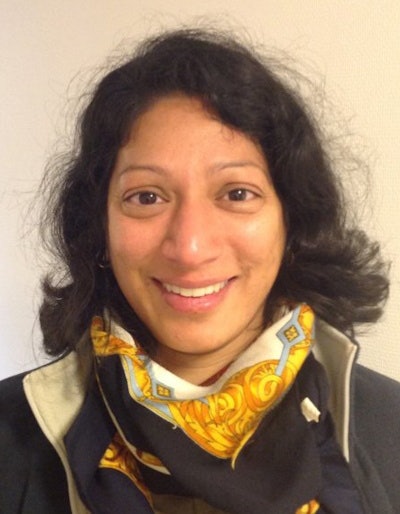 Dr. Anagha Parkar.
Dr. Anagha Parkar.Parkar agreed. Although Scandinavian countries enjoy the reputation of being further along than many others when it comes to gender equality, some areas of radiology -- but not radiology as a whole -- are still male-dominated, and "programs ought to be in place to secure equality and motivation to implement change should be raised," she said.
She acknowledged that the topic of equality can be difficult to discuss, as opinions differ as much as our experience of the world does, but she stressed that radiologists must learn to become conscious of diversity in every area and "help close these gaps we might not have previously been aware of."
Commitment to creating equality cannot be limited to the workplace, but must expand into patient care, Sinnatamby said, noting that the U.K.'s National Health Service (NHS) has pledged to treat all patients equally and to better understand their intersecting experiences of structural marginalization. One way to do this is to put cultural ambassadors in place within institutions --not only to raise issues of inequality but also to make sure disciplinary processes have fair outcomes, she said, noting that the responsibility to create a diverse and equitable healthcare environment goes beyond the level of the institution and rests with radiologists themselves.
In the coming years, the ECR aims to keep the discourse on DEI going, said ECR President Dr. Adrian Brady of Mercy University Hospital in Cork, Ireland. Disparities are somewhat different in every country, but perhaps through sharing perspectives radiologists can learn from one another and continue to develop competence in tackling issues of inequality across the board, he noted.
Editor's note: Coming soon is our ECR 2023 video interview on this topic with Dr. Yoshimi Anzai, from University of Utah, who took part in the panel discussion.
